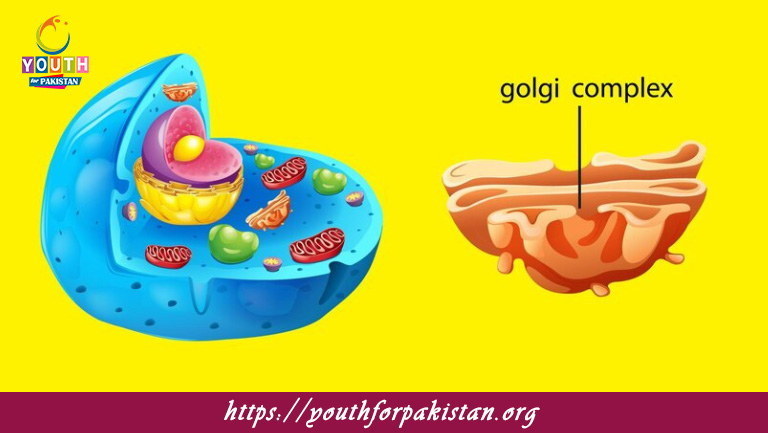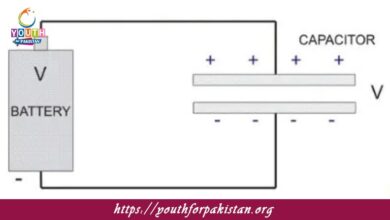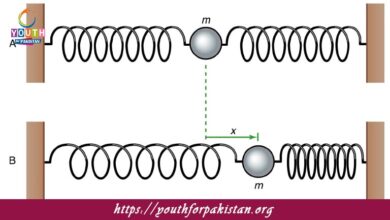Golgi Apparatus MDCAT MCQs with Answers

Welcome to the Golgi Apparatus MDCAT MCQs with Answers. In this post, we have shared Golgi Apparatus Multiple Choice Questions and Answers for PMC MDCAT 2024. Each question in MDCAT Biology offers a chance to enhance your knowledge regarding Golgi Apparatus MCQs in this MDCAT Online Test.
The Golgi apparatus is primarily involved in which cellular process?
a) DNA replication
b) Protein synthesis
c) Modifying, sorting, and packaging proteins
d) Energy production
The Golgi apparatus is made up of flattened membrane-bound sacs known as:
a) Thylakoids
b) Cisternae
c) Vesicles
d) Cristae
Which organelle works closely with the Golgi apparatus to transport proteins?
a) Nucleus
b) Ribosomes
c) Endoplasmic reticulum
d) Mitochondria
Golgi apparatus modifies proteins by adding:
a) DNA segments
b) Phosphate groups
c) Sugars (glycosylation)
d) Lipids
Which organelle is responsible for the formation of lysosomes?
a) Mitochondria
b) Golgi apparatus
c) Nucleus
d) Ribosomes
The Golgi apparatus was discovered by:
a) Robert Hooke
b) Camillo Golgi
c) Theodor Schwann
d) Louis Pasteur
Proteins from the rough ER are transported to the Golgi apparatus via:
a) Lysosomes
b) Vesicles
c) Mitochondria
d) Cytoplasm
What is the primary function of the trans face of the Golgi apparatus?
a) Protein synthesis
b) Receiving vesicles from the ER
c) Modifying proteins
d) Exporting vesicles to their final destination
The cis face of the Golgi apparatus is oriented toward the:
a) Nucleus
b) Plasma membrane
c) Endoplasmic reticulum
d) Mitochondria
The Golgi apparatus packages proteins into vesicles for which process?
a) Photosynthesis
b) Exocytosis
c) Osmosis
d) DNA replication
Which type of vesicle buds off from the Golgi apparatus?
a) Lysosomes
b) Peroxisomes
c) Ribosomes
d) Chromosomes
Golgi apparatus is most prominent in cells that secrete:
a) Hormones
b) Enzymes
c) Lipids
d) Both a and b
In plant cells, the Golgi apparatus is responsible for the synthesis of:
a) Cellulose
b) Hemicellulose and pectins
c) Starch
d) Lipids
What happens to the proteins that pass through the Golgi apparatus?
a) They are digested
b) They are broken down into amino acids
c) They are modified, sorted, and packaged for transport
d) They are stored in the nucleus
The Golgi apparatus in animal cells typically has how many cisternae?
a) 1-3
b) 4-6
c) 7-10
d) 10-15
Golgi apparatus is involved in the production of:
a) ATP
b) RNA
c) Secretory vesicles
d) Ribosomes
In which direction do proteins move within the Golgi apparatus?
a) From cis face to trans face
b) From trans face to cis face
c) From nucleus to cytoplasm
d) From mitochondria to ER
Which of the following is not a function of the Golgi apparatus?
a) Modifying proteins
b) Packaging proteins for transport
c) Synthesizing ribosomes
d) Producing lysosomes
The Golgi apparatus is most abundant in which type of cell?
a) Muscle cells
b) Nerve cells
c) Secretory cells
d) Blood cells
The primary role of the Golgi apparatus in the cell is to:
a) Store energy
b) Generate ATP
c) Process and package macromolecules
d) Break down waste materials
Golgi bodies help in the formation of:
a) Ribosomes
b) Peroxisomes
c) Cell wall in plants
d) Centrioles
Which of the following organelles receives proteins directly from the Golgi apparatus?
a) Ribosomes
b) Lysosomes
c) Nucleus
d) Mitochondria
The Golgi apparatus is involved in the synthesis of which macromolecules?
a) Proteins and lipids
b) Nucleic acids
c) Carbohydrates and lipids
d) Vitamins
Golgi apparatus plays a major role in:
a) Protein synthesis
b) Energy production
c) Sorting and transporting lipids and proteins
d) Cell division
Which of the following cells contains a highly developed Golgi apparatus?
a) Red blood cells
b) Neurons
c) Glandular cells
d) Muscle cells
The Golgi apparatus helps in forming:
a) Chloroplasts
b) Plasma membrane
c) Cell membrane
d) Mitochondria
The Golgi apparatus is often compared to which of the following due to its packaging and sorting function?
a) Powerhouse
b) Protein factory
c) Post office
d) Control center
Which organelle sends newly synthesized proteins to the Golgi apparatus for processing?
a) Smooth ER
b) Rough ER
c) Mitochondria
d) Nucleus
What happens to a protein after it leaves the Golgi apparatus?
a) It is destroyed
b) It undergoes glycolysis
c) It is transported to its final destination
d) It returns to the rough ER
The Golgi apparatus packages enzymes into vesicles known as:
a) Ribosomes
b) Mitochondria
c) Lysosomes
d) Peroxisomes
In cells, the Golgi apparatus is often associated with the:
a) Mitochondria
b) Nucleus
c) Rough ER
d) Ribosomes
The modification of lipids and proteins occurs in which region of the Golgi apparatus?
a) Cis face
b) Trans face
c) Intermediate cisternae
d) Rough ER
The Golgi apparatus is important for the secretion of:
a) Lipids
b) Sugars
c) Proteins
d) All of the above
The Golgi apparatus also plays a role in the transport of:
a) DNA
b) Phospholipids
c) RNA
d) Ribosomes
In the Golgi apparatus, enzymes perform which of the following actions on proteins?
a) Denaturation
b) Folding
c) Glycosylation
d) Phosphorylation
Which organelle interacts with the Golgi apparatus to detoxify drugs?
a) Rough ER
b) Smooth ER
c) Lysosomes
d) Nucleus
In plant cells, the Golgi apparatus helps produce materials for:
a) Mitochondria
b) Cell wall
c) Chloroplast
d) Peroxisome
Golgi apparatus is often referred to as the:
a) Command center
b) Transport hub
c) Packaging and distribution center
d) Energy powerhouse
If you are interested to enhance your knowledge regarding Physics, Chemistry, Computer, and Biology please click on the link of each category, you will be redirected to dedicated website for each category.





